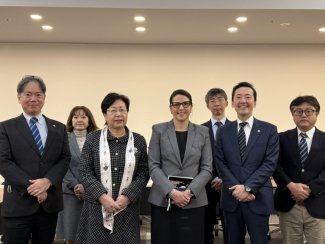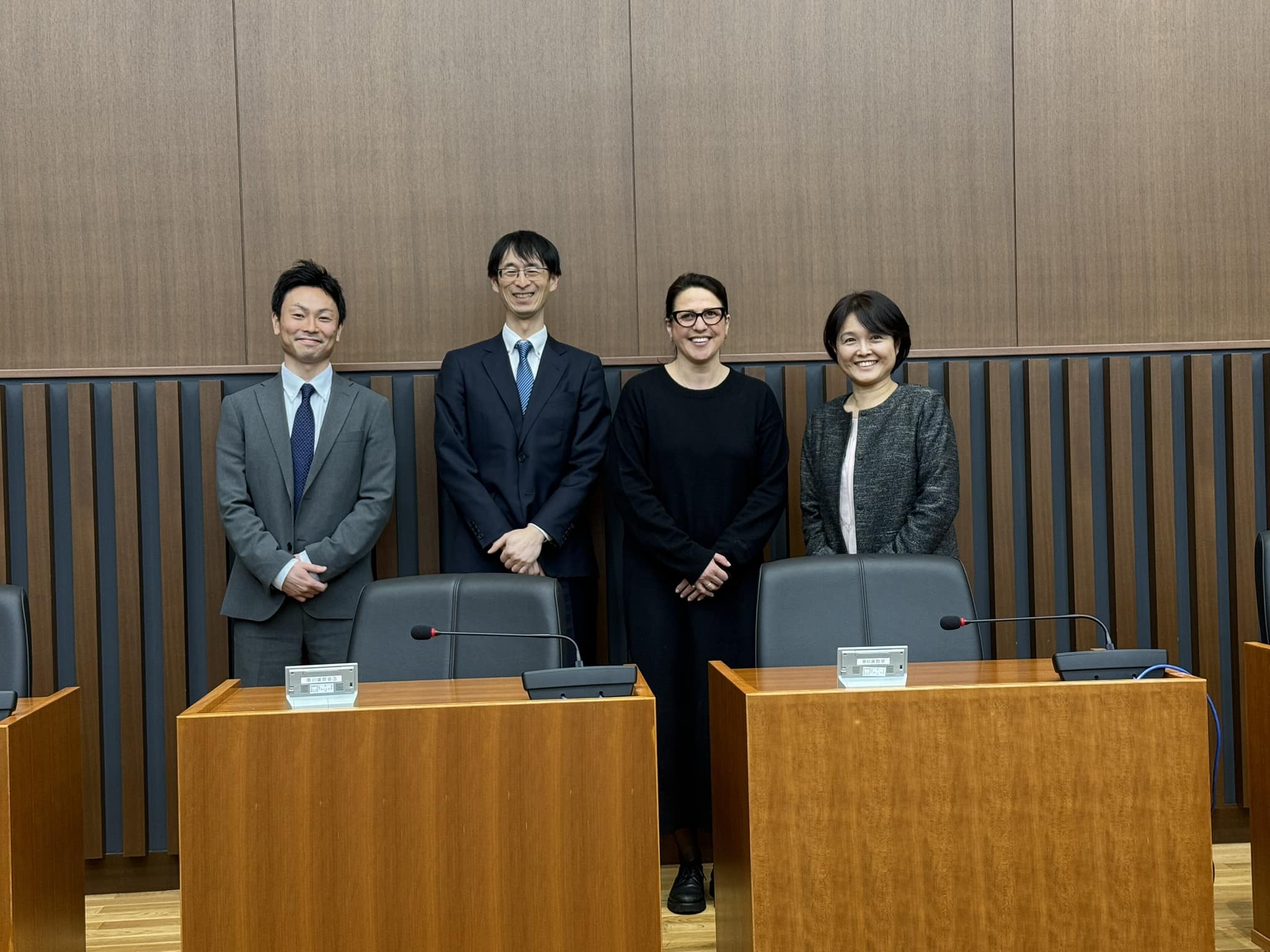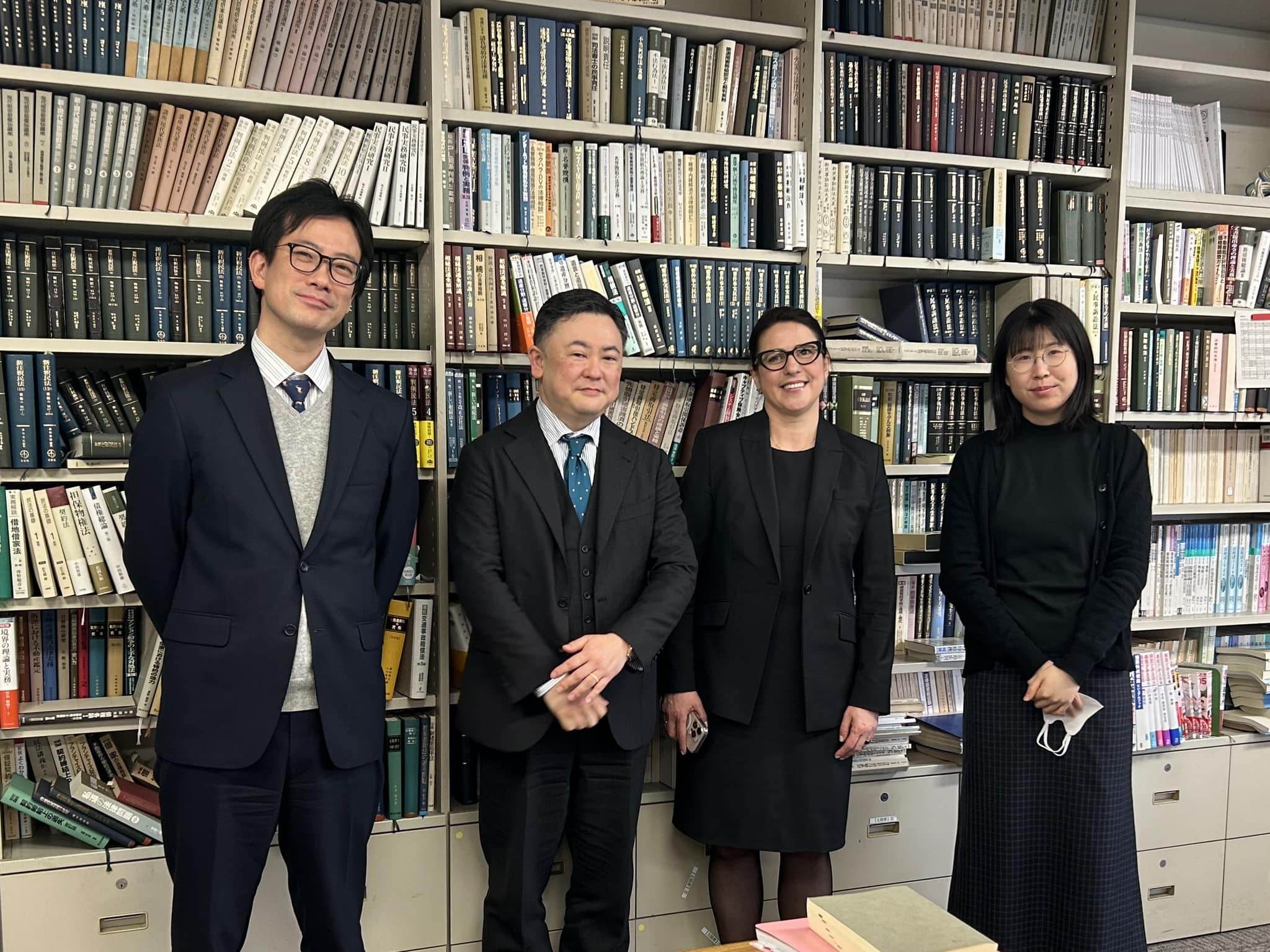Contact center of the Ukrainian Judiciary 044 207-35-46

During a visit to Japan, Supreme Court Judge of the Commercial Cassation Court Olena Kibenko got acquainted with the work of the Japanese judicial system and visited several judicial institutions in Tokyo, including the Supreme Court of Japan, Tokyo Business Court, Tokyo District Court.
As a judge of commercial jurisdiction, Olena Kibenko drew attention to the experience of the Tokyo Business Court, which was established only in 2022 as a division of the Tokyo District Court. Four categories of cases were transferred to this court, which were previously considered by the courts of general jurisdiction: 1) commercial disputes; 2) IP disputes; 3) bankruptcy cases; and 4) restructuring disputes. The court is focused on serving business, fast consideration of cases, and judges must have relevant experience and specialisation. The ideas of a possible transition to hearing cases with foreign participants in English are being discussed. A model for the establishment of the Tokyo Business Court was the London Commercial Court, with which Japanese colleagues actively cooperate.
Olena Kibenko learnt about the work of the Legal Training and Research Institute of Japan. In particular, she found out more about the programme of so-called dispatch-style courses aimed at combating professional burnout among judges and gaining experience in developed modern business structures. Under the terms of the programme, a judge can go to work in private business for one year, in a company that is a partner of the Institute in this programme. As a rule, the programme partners are large banks, manufacturing and law firms. The judge can work there as a lawyer or do something else entirely. At the same time, the status of a judge and salary are preserved. Approximately 50 judges undergo such training per year. It gives judges practical skills and an understanding of business. The Institute also offers many study abroad programmes. Such programmes are aimed at enabling judges to go beyond the court and gain experience in other areas, both in Japan and in other countries.

The Supreme Court judge also met with the leadership of the Japan Federation of Bar Associations and representatives of local bar associations to discuss the directions and consequences of the judicial reform currently being implemented in Japan, the role of the judiciary and the bar in such changes.
During the visit, Olena Kibenko toured the main campus of the University of Tokyo, which is the oldest and most reputable educational institution in the country, and held an informal meeting with students and professors of the University, during which students had the opportunity to ask the judge various questions. The meeting was held in accordance with the Chatham House Rule, which promotes frank discussion.

The programme was organised within the framework of the Standing International Forum of Commercial Courts (SIFoCC) with the assistance of Robin Knowles, Judge of the London Commercial Court, who is responsible for the current work of the SIFoCC.
For reference. The Standing International Forum of Commercial Courts (SIFoCC) was established in May 2017. Together with Ukraine, which became a full member of the SIFoCC on 29 May 2024, the SIFoCC unites 58 countries.